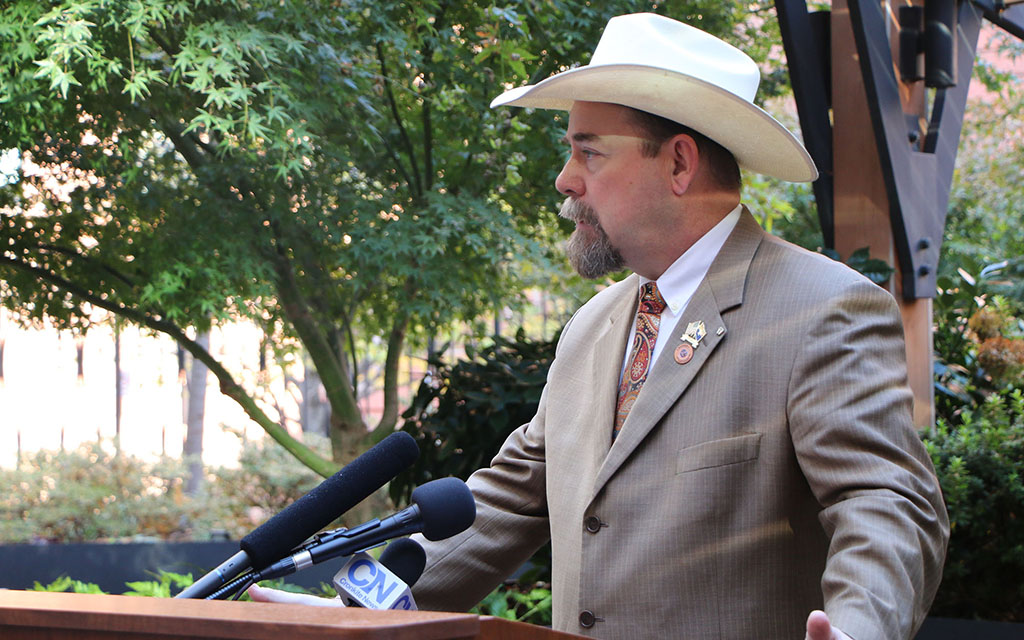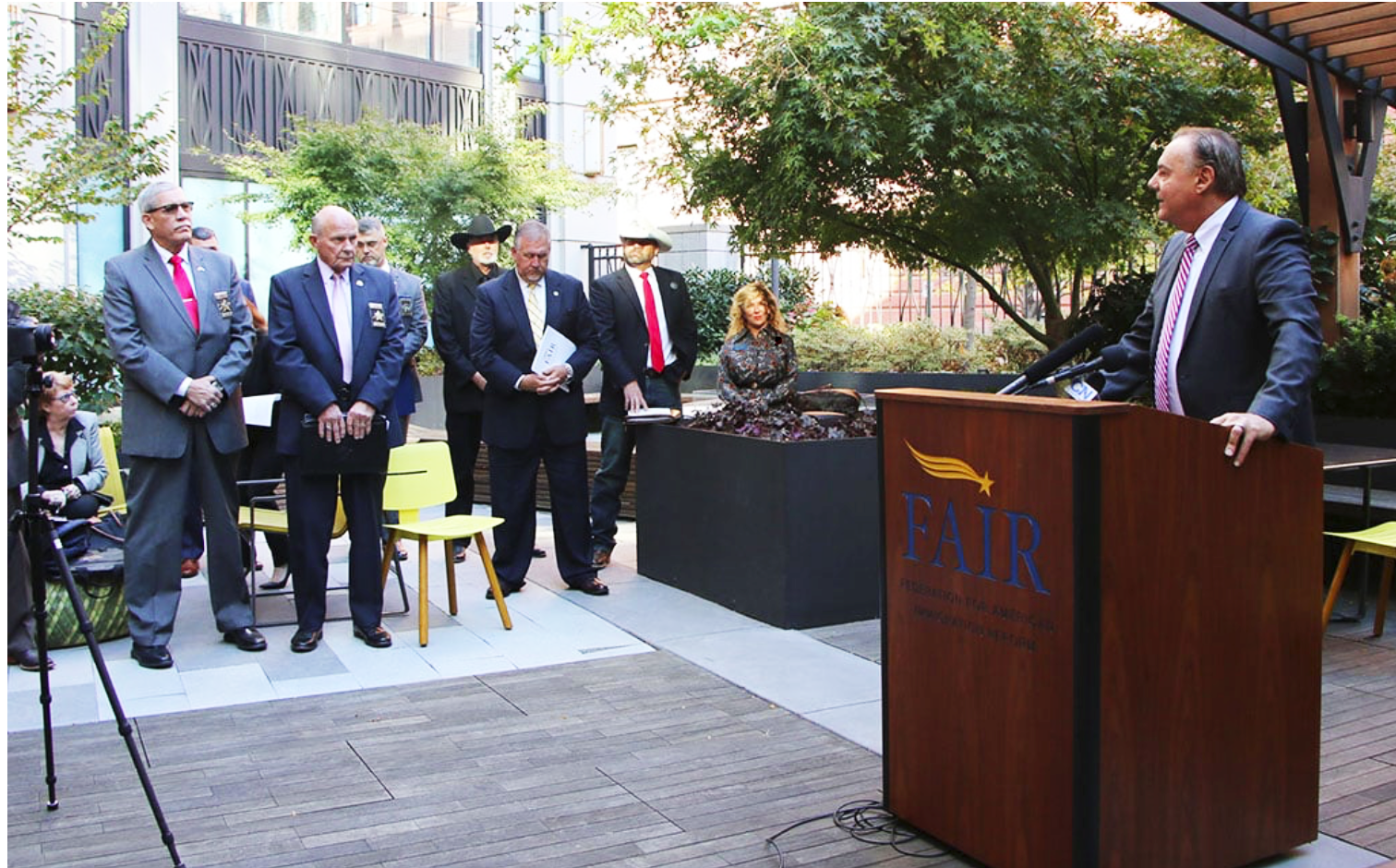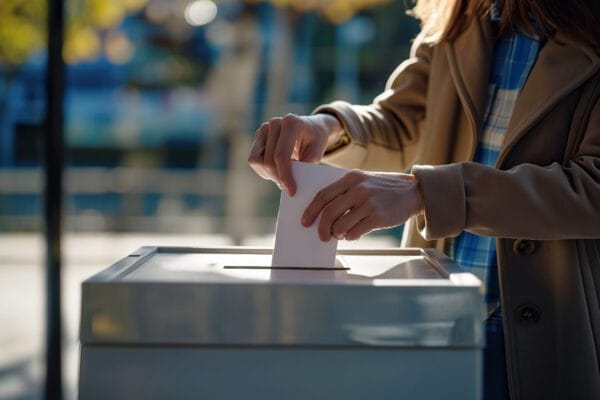Cronkite News
Federation for American Immigration Reform President Dan Stein speaks to advocates and local officials who were in Washington for a FAIR-organized event to press their concerns about record-high immigration. (Photo by Adrienne Washington/Cronkite News)

Arizona state Sen. David Gowan, R-Sierra Vista, said that in 30 years of living near the border, he has not seen immigration as bad as he says it is today. Gowan was in Washington to meet with federal lawmakers on the issue. (Photo by Adrienne Washington/Cronkite News)
WASHINGTON – In all the time he’s lived near the border, Arizona Sen. David Gowan, R-Sierra Vista, said he has never seen an immigration crisis as bad as the one he’s seeing now.
“It’s the highest incursion we’ve had since I’ve lived down there,” said Gowan, who has lived in Cochise County for 30 years.
That was the message that Gowan and a handful of local officials and activists from across the country hoped to deliver to members of Congress while in Washington this week. As Terrell County, Texas, Sheriff Thad Cleveland said, it’s not just a problem for border states.
“In Terrell County, we don’t have a crime problem. We’ve got a national security problem,” Cleveland said at the Wednesday event organized by the Federation for American Immigration Reform.
The event comes at a time when migrant encounters at the southern border have reached historic highs. Customs and Border Protection said that a record 2.47 million migrants were encountered at the southern border in fiscal 2023, which ended in September. Data from October is not yet available from CBP.
The data also showed that the Tucson sector, which encompasses most of the state’s border with Mexico, saw the highest number of encounters of any CBP sector for the last three months of the fiscal year.
A total of 373,625 migrants were encountered in the Tucson sector for all of fiscal 2023, the third-highest sector for the whole year. The Yuma sector, which covers the rest of Arizona’s border with Mexico, recorded a total of 174,201 encounters for the year, according to CBP.
Gowan said he and the others came to Washington to share the reality of the southern border with members of Congress.
“The interior states, we need to get to those congressmen, tell them what’s happening down there, what’s happening with the people on the ground, how we need aid to our police forces. You know, certainly our sheriff offices,” Gowan said.
Gowan said in an interview after the conference that he is not against immigration, but he wants to ensure those who enter the country do so legally and are carefully vetted.
“I believe in legal immigration. So we have ports of entry and that’s where the legal immigration process should start,” he said. “Not just crossing the border and breaking the laws already, but that’s … at a lower level than what the cartels are doing.”
In addition to citing the surging numbers of migrants, Gowan and others at the event repeated stories of drug and human trafficking they said are coming across the border.
“The drugs and the smuggling that they’re bringing across is the highest we’ve ever seen. And 50% of the fentanyl comes across our border right there, that’s bad for us. That’s bad for our nation,” he said. “So at least some of them (migrants), a lot of them are up here and they’re, they’re criminals themselves. That’s what we’re seeing.”
But an attorney for the Southern Border Communities Coalition called that sort of rhetoric typical of the type of “dehumanizing language” used to “demonize” migrants.
(Video by Alexandria Cullen/Cronkite News)
“I think that there is a human right to migration, there is a human right to be treated with respect … regardless of what the numbers of migration are in any given day,” said Ricky Garza, the attorney.
Garza said migration “would run a lot smoother” if asylum seekers were able to “go to the ports of entry and actually make a claim as they’re obligated to do under international law.”
“But instead we’ve seen all these artificial roadblocks and limits being thrown up and it can only be this many number of people a day (entering the U.S.) and – that really has no basis in international law,” he said.
They did not offer specific solutions to what they called the immigration crisis, but most of the speakers at Wednesday’s event blamed the Biden administration. Cleveland said it’s not the fault of one administration or another, but that something that needs to be figured out to address the national issue.
“This is a solvable problem,” said Cleveland, who spent 25 years working for Border Patrol. “It doesn’t matter if you’re Democrat or Republican, we need to fix this.”








